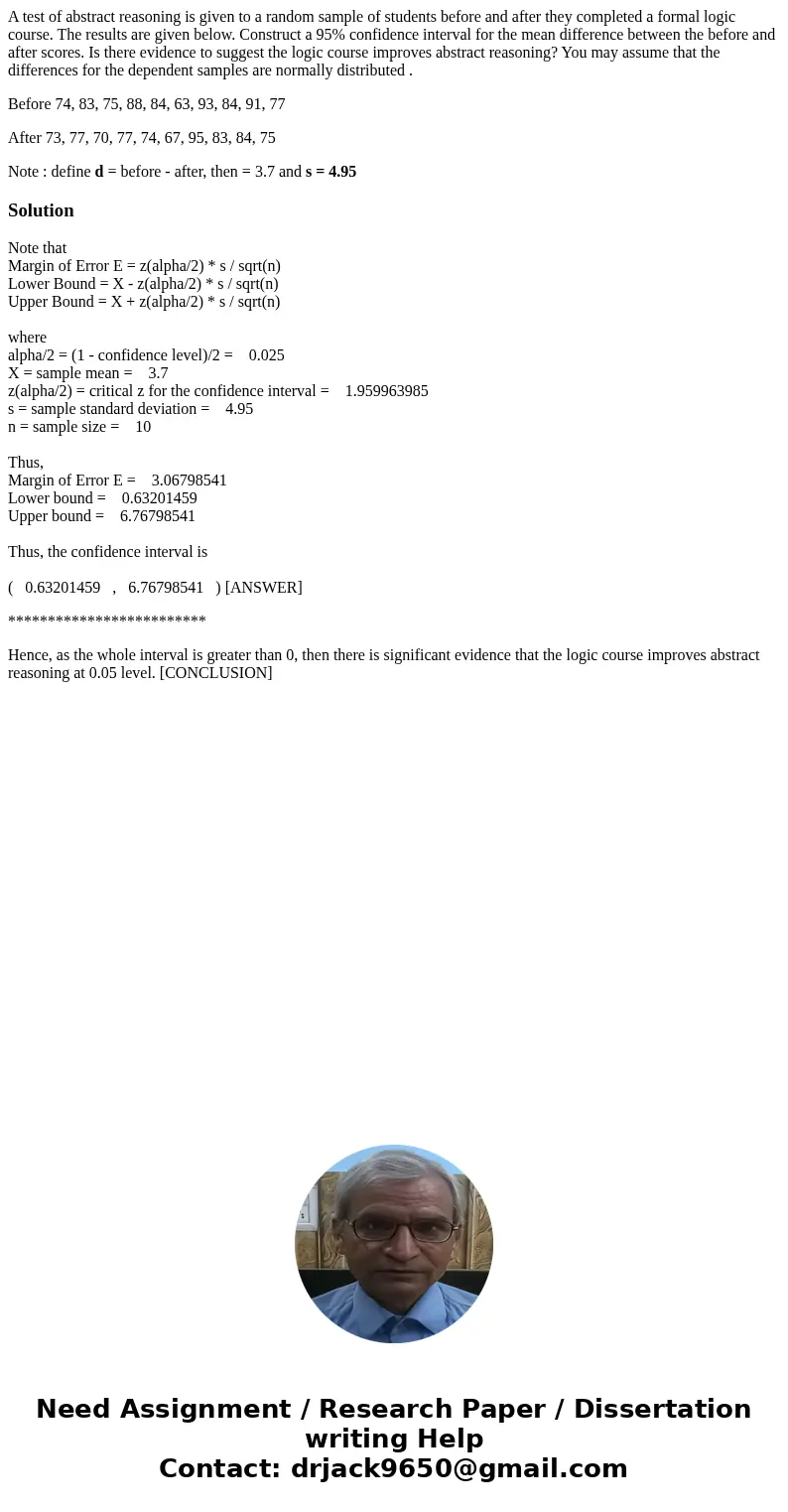A test of abstract reasoning is given to a random sample of
A test of abstract reasoning is given to a random sample of students before and after they completed a formal logic course. The results are given below. Construct a 95% confidence interval for the mean difference between the before and after scores. Is there evidence to suggest the logic course improves abstract reasoning? You may assume that the differences for the dependent samples are normally distributed .
Before 74, 83, 75, 88, 84, 63, 93, 84, 91, 77
After 73, 77, 70, 77, 74, 67, 95, 83, 84, 75
Note : define d = before - after, then = 3.7 and s = 4.95
Solution
Note that
Margin of Error E = z(alpha/2) * s / sqrt(n)
Lower Bound = X - z(alpha/2) * s / sqrt(n)
Upper Bound = X + z(alpha/2) * s / sqrt(n)
where
alpha/2 = (1 - confidence level)/2 = 0.025
X = sample mean = 3.7
z(alpha/2) = critical z for the confidence interval = 1.959963985
s = sample standard deviation = 4.95
n = sample size = 10
Thus,
Margin of Error E = 3.06798541
Lower bound = 0.63201459
Upper bound = 6.76798541
Thus, the confidence interval is
( 0.63201459 , 6.76798541 ) [ANSWER]
*************************
Hence, as the whole interval is greater than 0, then there is significant evidence that the logic course improves abstract reasoning at 0.05 level. [CONCLUSION]

 Homework Sourse
Homework Sourse